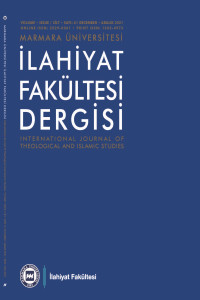Elizabeth Urban. Conquered Populations in Early Islam. Edinburgh: Edinburgh University Press, 2020, 217 sayfa.
Abstract
Fethedilen topraklardaki toplumsal sınıflar ve sosyal hayatın yanı sıra yeni Müslüman olanların İslâm toplumuna adaptasyonu da modern dönemde araştırmacıların dikkatini çekmektedir. Özellikle İslâm öncesi dönemde toplum mensuplarının kuvvetli kabile bağlarına sahip olması ve köle, azatlı ya da nesebi belirsiz olanların mezkûr kabile bağının dışında kalması nedeniyle bazı anlaşma çeşitleri uygulanarak toplum zemini kabile esasına göre düzenlenmiştir. İslâm’ın gelişiyle bu anlaşmalardan bazıları yeniden düzenlenerek ibkâ edilirken bazıları kaldırılmıştır. Bu çerçevede mevâlî meselesi İslâm tarihi ve hukuku açısından fazlaca incelenmiştir. Elizabeth Urban’ın 2012 yılında Chicago Üniversitesi’nde tamamladığı doktora tezine dayanan ve kimi tasarruf ve ilavelerle yayına hazırlanan Conquered Populations in Early Islam adlı eseri de bu konuyu ilk dönem İslâm tarihinde mevâlî, köle kadınlar (câriye) ve cariyeden doğan çocuklar (hecîn) çerçevesinde ele almaktadır.
Keywords
References
- Elizabeth Urban. Conquered Populations in Early Islam. Edinburg: Edinburg University Press, 2020, 217 sayfa.
Elizabeth Urban. Conquered Populations in Early Islam. Edinburgh: Edinburgh University Press, 2020, 217 sayfa.
Abstract
In addition to the social classes and social life in the conquered lands, the adaptation of new Muslims to the Islamic society attracts the attention of researchers in the modern period. Especially in the pre-Islamic period, because the members of the society had strong tribal ties and those who were slaves, freedmen or whose lineage was unknown were excluded from the aforementioned tribal ties, some types of agreements were applied and the basis of the society was arranged on a tribal basis. With the advent of Islam, some of these agreements were reorganized and kept, while others were abolished. In this context, the issue of mawâlî has been studied extensively in terms of Islamic history and law. Elizabeth Urban's work, Conquered Populations in Early Islam, which is based on her doctoral thesis completed at the University of Chicago in 2012 and has been prepared for publication with some savings and additions, covers this subject within the framework of mawâli, slave women (concubine) and children born by concubines (hajîn) in the early Islamic history. is addressing.
Keywords
References
- Elizabeth Urban. Conquered Populations in Early Islam. Edinburg: Edinburg University Press, 2020, 217 sayfa.
Details
| Primary Language | Turkish |
|---|---|
| Journal Section | Book Review |
| Authors | |
| Publication Date | December 16, 2021 |
| Published in Issue | Year 2021 Volume: 61 Issue: 61 |
International Journal of Theological and Islamic Studies
International Journal of Theological and Islamic Studies is an open access journal
Click for Open Access Policy

